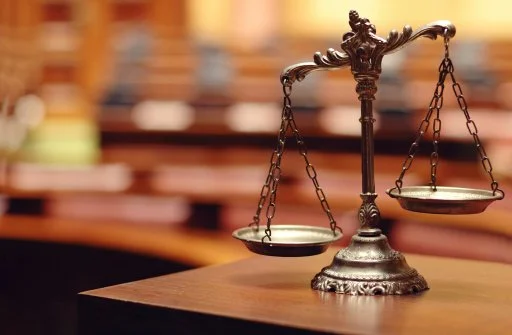By: Samantha Powers
Edited By: william tong and isabel gortner
Since the Biden administration launched its $400 billion student debt relief plan, six states have sued. The states—Arkansas, Iowa, Kansas, Missouri, Nebraska and South Carolina—claim that Biden’s plan is an unlawful overreach of executive power. In addition, the states allege that Biden’s program comes from motives to fulfill his campaign promise to relieve at least $10,000 per person in student debt. On the other hand, the Biden administration argues that the states lack the standing needed to dismantle a nationwide initiative, an argument that was affirmed by U.S. District Judge Henry Autrey when he threw the suit out earlier in the case’s process. At most, the administration argues, the states could block debt relief for loans serviced by state-specific entities. [1] In lower courts, judges have placed holds on Biden’s plan by calling into question its constitutionality. Now, the Supreme Court has agreed to a request from the Biden administration to fast-track an appeal and hear oral arguments in February.
In one of the cases, Brown v. U.S. Dept. of Education (No. 4:22-cv-0908-P, 2022), District Judge Mark Pittman ruled that the Biden administration’s program is an overstep of its “legislative powers,” which should only be exercised with clear consent from Congress. [2] In addition, Judge Pittman added, the plan was enacted on the grounds of the Higher Education Relief Options for Students (HEROES) Act of 2003. This act was passed in response to 9/11, and its intent was to provide student debt relief for military personnel serving the country. There is, however, a provision in the act for the Secretary of Education to provide student loan relief for those affected economically by a state of national emergency, which the Biden administration declared the COVID-19 pandemic to be. [3] According to Judge Pittman, this connection is not grounds to uphold the new debt relief program. The U.S. 5th Court of Appeals sided with Judge Pittman, leaving the Biden administration to turn to the Supreme Court for a final decision.
For now, the Biden administration has upheld the Trump-era hold on student loan payments in response to the COVID-19 pandemic, but this provision won’t last forever. Those who are relying on the student debt plan aren’t yet in the clear: at the latest, student loan payments will resume on Sept. 1, 2023. Without Biden’s program, millions of borrowers may be thrown into an economically impossible situation [4]. This pressure, taken together with intersecting factors of race and socioeconomic class, could wreak havoc on American families that have been historically disadvantaged.
Student loan debt disproportionately affects Black people in America. Black Americans are proven to borrow more often, borrow more, and have more difficulty paying off their loans in the future. [5] This can, in part, be attributed to the struggle of Black families in America to build generational wealth in the face of structural racism. Without family funds to fall back on, many Black college students are forced to fend for themselves. This has financial and mental ramifications that can last a lifetime. [6] An added difficulty is that Black borrowers have trouble saving money for their own kids to go to college, thus perpetuating the cycle that ultimately contributes to income inequality in America.
Now, millions of borrowers will be looking to the Supreme Court to decide their fate. The court is packed with 6 conservative justices and only 3 liberals, leaving the Biden administration with difficult odds in its battle against 6 GOP-led states. In addition, 6 out of the 9 justices are white, leading to unfavorable odds given the fact that a majority of the justices hearing the case don’t have the first-hand experience of racial injustice that might be needed to make a fully informed decision concerning issues of debt and generational wealth. [6] This doesn’t make things look good for the millions of borrowers relying on Biden’s plan to relieve them, but ultimately, only time will tell on which side of history this nation will fall.
NOTES:
Amy Howe, “Court will review legality of Biden’s student-debt relief, but plan remains on hold for now,” Scotus Blog, Dec. 1, 2022, https://www.scotusblog.com/2022/12/court-will-review-legality-of-bidens-student-debt-relief-but-plan-remains-on-hold-for-now/.
Brown v. Department of Educ., No. 22-11115 (Nov. 30, 2022)
Higher Education Relief Opportunities for Students Act, Pub. L No. 108-76, 117 Stat. 904 (2003).
“By The Numbers: Millions of Americans’ Student Loan Costs Will Rise Dramatically Under Republican Officials’ Plans,” The White House, Nov. 3, 2022, https://www.whitehouse.gov/briefing-room/statements-releases/2022/11/03/by-the-numbers-millions-of-americans-student-loan-costs-will-rise-dramatically-under-republican-officials-plans/.
Judith Scott-Clayton and Jing Li, “Black-white disparity in student loan debt more than triples after graduation,” Brookings, Oct. 20, 2016, https://www.brookings.edu/research/black-white-disparity-in-student-loan-debt-more-than-triples-after-graduation/.
“How Student Debt Harms Black Borrowers’ Mental Health,” The Education Trust, July 28, 2022, https://edtrust.org/resource/how-student-debt-harms-black-borrowers-mental-health/.
“Current Members,” Supreme Court of the United States, accessed Dec. 3, 2022, https://www.supremecourt.gov/about/biographies.aspx.
BIBLIOGRAPHY:
“By The Numbers: Millions of Americans’ Student Loan Costs Will Rise Dramatically Under Republican Officials’ Plans,” The White House, Nov. 3, 2022. https://www.whitehouse.gov/briefing-room/statements-releases/2022/11/03/by-the-numbers-millions-of-americans-student-loan-costs-will-rise-dramatically-under-republican-officials-plans/.
“Current Members,” Supreme Court of the United States, accessed Dec. 3, 2022. https://www.supremecourt.gov/about/biographies.aspx
“How Student Debt Harms Black Borrowers’ Mental Health,” The Education Trust, July 28, 2022. https://edtrust.org/resource/how-student-debt-harms-black-borrowers-mental-health/.
Howe, Amy. “Court will review legality of Biden’s student-debt relief, but plan remains on hold for now,” Scotus Blog, Dec. 1, 2022. https://www.scotusblog.com/2022/12/court-will-review-legality-of-bidens-student-debt-relief-but-plan-remains-on-hold-for-now/.
Li and Scott-Clayton, “Black-white disparity in student loan debt more than triples after graduation,” Brookings, Oct. 20, 2016. https://www.brookings.edu/research/black-white-disparity-in-student-loan-debt-more-than-triples-after-graduation/.




